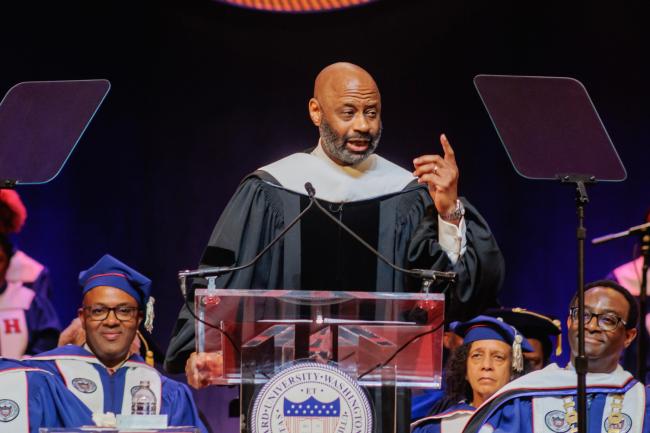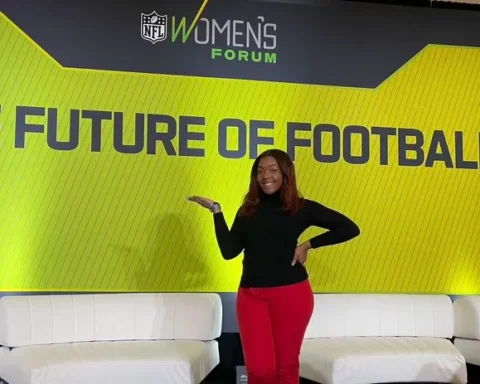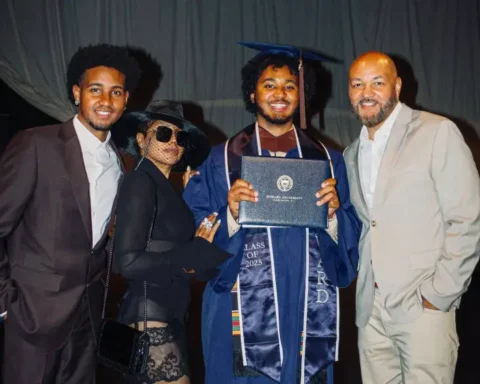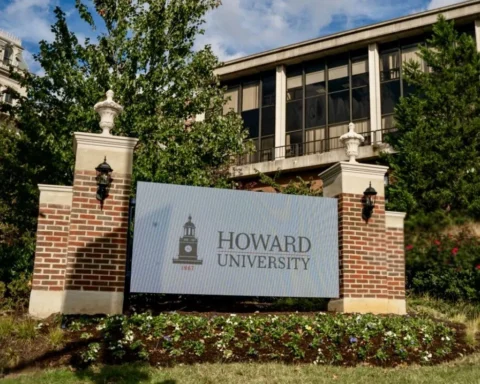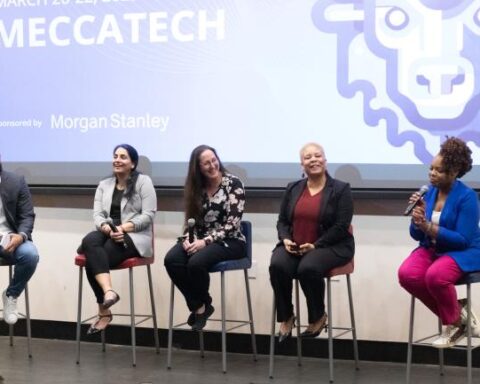By Cedric Mobley
Howard University graduate and Board of Trustees Vice Chair Mark Mason (BBA ’91) interviewed multiple times for a position at Goldman Sachs, finally landing a position as an analyst. He left Wall Street to attend Harvard Business School, by then realizing that Howard had prepared him to compete with “anyone and everyone.”
Now the chief financial officer at Citi, Mason is sure that his Howard experience has paid dividends for him as he deals with the challenges of global business from his executive suite. With more than 100 million customers, Citi manages $5 trillion in financial flows daily, the equivalent of Germany’s gross domestic product.
“One of the exhilarating things about my role as CFO is that it gives me an elevated perch to see across industries and geographies to study our changing world,” Mason said. “The skills that allow me to do that—think critically, assess risk, and apply clear values to complex problems—are all skills that I learned during my days at Howard.”
As guest speaker during Howard’s 2024 Opening Convocation, Mason offered four lessons that anyone can use to elevate their lives and careers.
1. Use our voices to propose different ideas and inspire change.
Mason urged those who identify problems to also identify solutions. Beyond simply protesting injustices, he said that we must find ways to create what he called a “just peace.”
Mason recounted sharing his perspective in the aftermath of George Floyd’s killing by police officers in Minneapolis who have now been convicted of murder and other charges. Realizing that he had a uniquely influential platform due to his role at Citi, Mason wrote a post for the company’s blog that was inspired by his children’s voices. The post, which began with the words, “I can’t breathe,” was a bold and brave move from someone in a position of power who could have easily avoided a politically risky stance. In his post, Mason instead confronted racism head-on.
“Racism continues to be at the root of so much pain and ugliness in our society – from the streets of Minneapolis to the disparities inflicted by COVID-19,” Mason said in his post. “As long as that’s true, America’s twin ideals of freedom and equality will remain out of reach.”
Mason continued, “These systemic problems will not go away until we confront them head on. So, we must continue to speak up and speak out whenever we witness hatred, racism, or injustice. I know I will – and I hope you will too.”
Mason’s credibility as a trailblazing executive gave credence to the integrity of his viewpoint and would galvanize the corporate world behind efforts to address inequity. During his convocation speech, he encouraged those in attendance to use their uniquely differentiated backgrounds and experience to lend value to any organization.
“As the educated, we must be the educators,” Mason said.
2. Allow yourself space to grow.
Mason enrolled at Howard with the intention of becoming a doctor who would one day cure the arthritis from which his grandmother suffered. He eventually changed his major to accounting and finally to finance. He encouraged the audience to take the time to learn about themselves and engage in self-discovery even as they pursue academic advancement, insisting that it is not necessary to have all the answers today.
“This is both an experiment and an experience,” Mason said, asking the audience to, “allow yourself the freedom to explore. Cultivate the taste for that adventure.”
3. Recognize the value of all your relationships.
Mason emphasized that the students in attendance were there not just because of their own accolades and assertiveness, but also because of the efforts of people who love, advocate for, and support them.
He advised the students to lean on those people for strength, and proactively maintain lines of communication with them. Urging the students to value relationships with their “Day Ones,” Mason stressed that the friends he made at Howard have become lifelong companions he communicates with frequently. In many communities, a “Day One” is someone you have known for a very long time.
“The people who know you are the people who ground you,” Mason said. “Treasure them.”
4. Recognize the power of education.
As reparations for slavery, newly freed Blacks were led to believe they would receive “40 acres and a mule,” a promise that never came to pass.
Instead, Mason argued, they were granted access to Howard University, which became the epicenter of Black education and, as fellow former Howard alum Ta-Nehisi Coates described the University, “the beacon point for the entire Black diaspora around the world.” An education, Mason said, provides the tools needed to succeed and make a living. He reflected on the pivotal societal contributions of former Howard students including Thurgood Marshall (JD ’33), civil rights icon James Farmer (B.Div. ’41), Freedom Rider Dion Diamond, activist Stokely Carmichael, also known as Kwame Ture (BA ’64), and author Toni Morrison (BFA ’53).
Like today’s Howard students, Mason recalled sitting among great minds who would go on to be leaders in every field of education. While a student himself, Mason studied alongside Kasim Reed (BA ’91, JD ’95), who would become mayor of Atlanta; Ras Baraka (BA ’91), the current mayor of Newark, NJ; and his roommate William Jelani Cobb (BA ’94), who is now dean of the Columbia University Journalism School. Others who walked the campus with Mason include Christina Swarns (BA ’90), executive director of the Innocence Project; and Leslie Hale (BBA ’94), president and chief executive officer at RLJ Lodging Trust and Mason’s co-vice-chair on the University Board of Trustees.
“A Howard education is a call to excellence,” Mason said.

